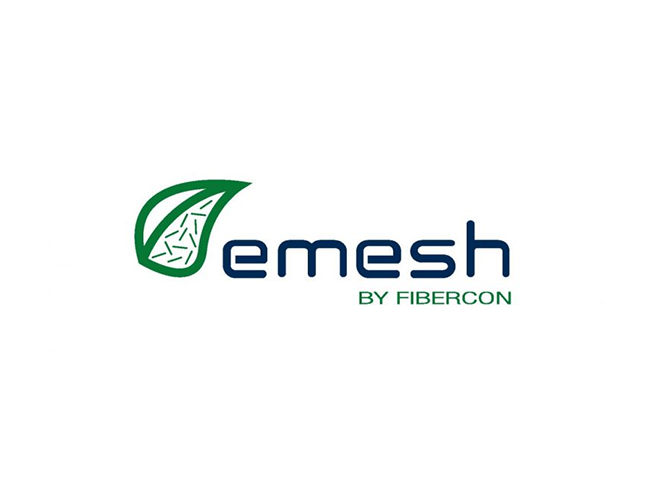
Queensland engineering firm Fibercon has reached a big environmental milestone, having recycled over 50 tons of plastic waste using a new, revolutionary method for replacing steel mesh used in concrete reinforcement with recycled plastic.
The technology, which was co-developed with researchers from Queensland’s James Cook University, uses recycled polypropylene plastic for reinforcing concrete instead of the traditional steel.
Since its inception in 2017, the technology incorporated in Fibercon’s Emesh product has been used predominantly in footpaths, but Fibercon is adamant it can also be used in pavement concrete to channel drains, for embankment erosion control, precast sewer and stormwater pits.
According to a 2016 report prepared for the Department of Environment and Energy, Australia averages 107kg of plastic waste per person each year, as well as approximately 1m3 of concrete per person.
In total, Australia uses 25 million m3 of concrete per year, about 5% of which is used in footpath and pavement.
“So we have effectively recycled the plastic waste for 467 Australians,” explained Fibercon CEO Mark Combe, referring to the amount of plastic waste the company had recycled over the past year.
“If we replaced all the steel mesh in these pavements with Emesh, we would reduce CO2 by 125,000 tons annually, and re-use 5,000 tons of waste plastic. It’s and exciting goal for us,” he added.
While steel reinforcement is still the most commonly used form of concrete, its production is heavy dependant on the use of fossil fuels and water, making it one of the world’s leading industrial sources of greenhouse gasses.
By using the recycled plastic technology, the company has also seen a reduction to date of 1,000 tons of CO2, 200 tons of fossil fuels reduction, and a 18,000 m3 of water reduction.
“According to the United States Environmental Protection Agency calculations, the reductions we have achieved in CO2 emissions, are the equivalent of taking 214 passenger cars off the road for 1 year,” Mr Combe continued.
“Plastic fibres in concrete have been around for twenty years – what is new about our product is that it is 100% recycled.”
“The intention is to do something to give back, to close the cycle of useless waste.”




















